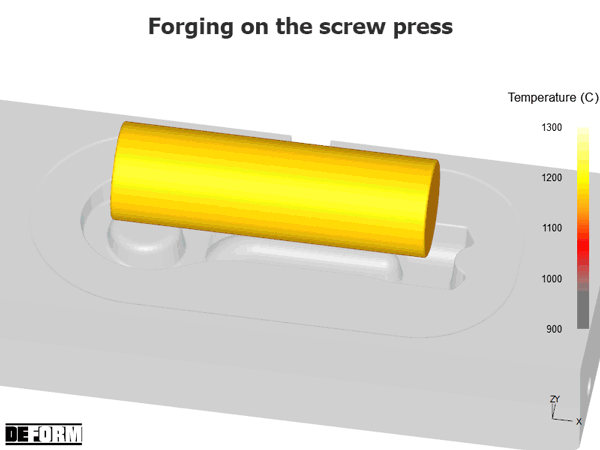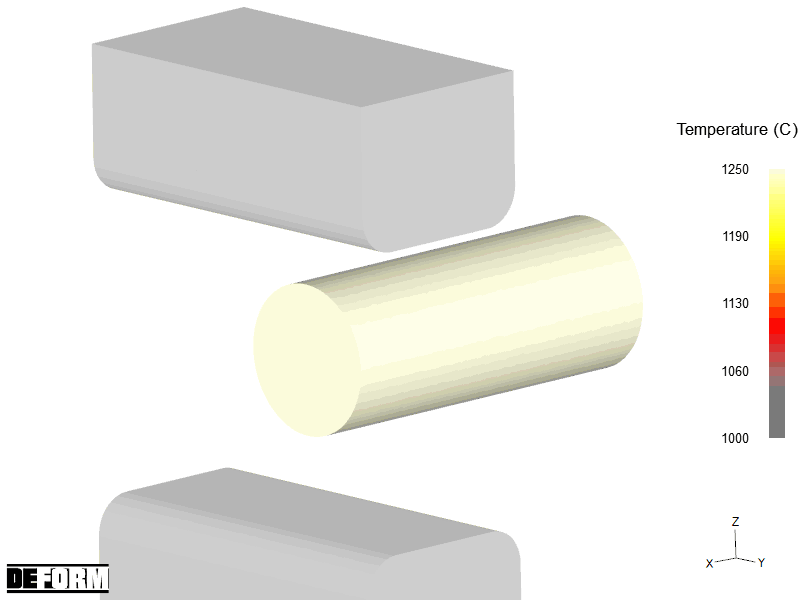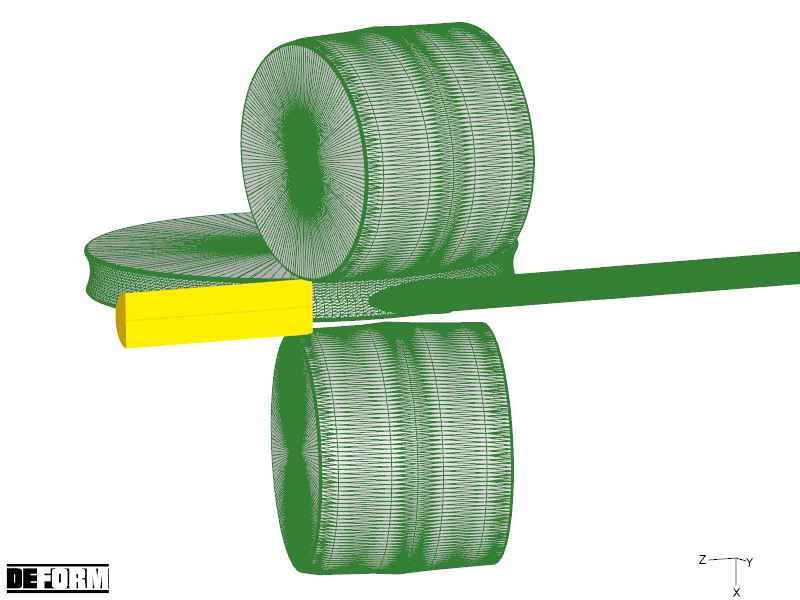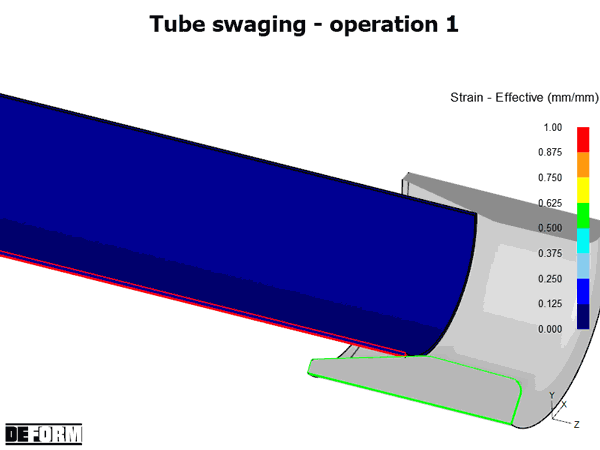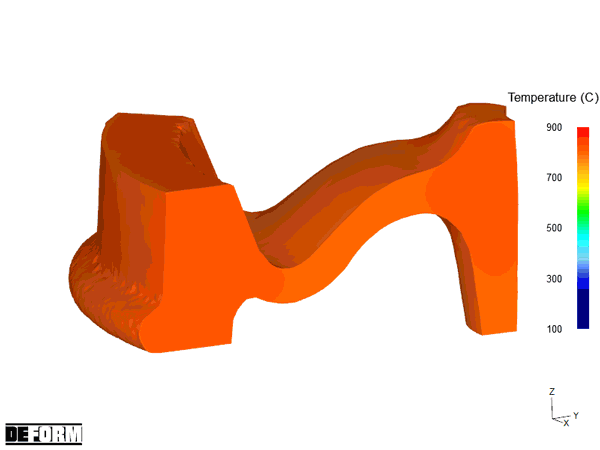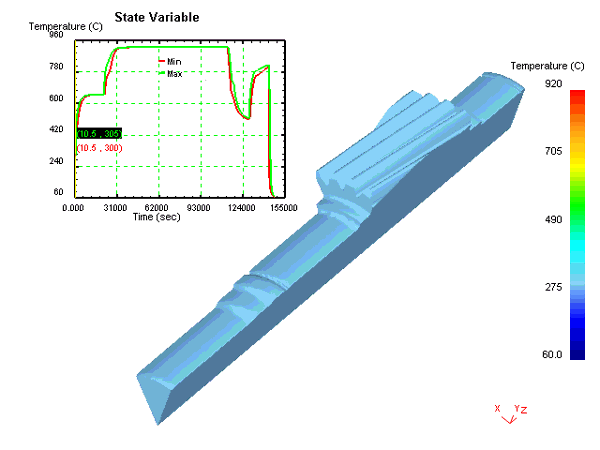We deal with the modelling of technological processes, especially processes of various types of forming - hot and cold, surface and volume, and heat treatment. We use the finite element systems DEFORM, Simufact, Autoform and ABAQUS. The simulation predicts the temperature, strain, stress and flow distribution of the formed material for each moment of the process. In addition, the type of tool stress (mechanical and thermal) and the evolution of the total forming forces can be determined.
Open and closed-die forging
When simulating standard forming processes, it is necessary to consider the delays between machine strokes, which have a significant influence on the temperature distribution in the material volume and thus on the resulting flow. This parameter is important not only for closed-die forging, but also for open-die forging of difficult-to-form materials.
Tube production
In tube manufacturing simulations, the early stages of the process are critical, where unwanted eccentricities can occur that cannot be corrected in subsequent operations. Other important parameters are ovality, wall thickness and residual stress distribution. Ovality is caused by uneven forming or asymmetrical cooling. Residual stresses affect the geometric stability and the lifetime of the tube. It is important to optimise the process parameters such as forming speed, forming temperature and cooling. Simulations help to minimize defects like surface cracks. The correct process settings improve the homogeneity of the mechanical properties and reduce manufacturing inaccuracies. The result is improved quality and reliability of the tubes in service.
Heat treatment
Heat treatment simulation requires inputs such as material properties and process description. The main results of these analyses are temperature fields over time, phase transformations and residual stress distributions. They also provide information about the microstructure, grain size and hardness profiles. The simulation allows to monitor the depth of the diffusion layer and the distribution of mechanical properties over the volume of the component. Information about the risk of deformation and internal stresses after quenching and tempering is also crucial.
Equipment
- Simulation systems DEFORM, Simufact, Autoform a ABAQUS
|
 |
 |
 |
 |
- Software for computing properties of materials JMatPro
|
 |
|

